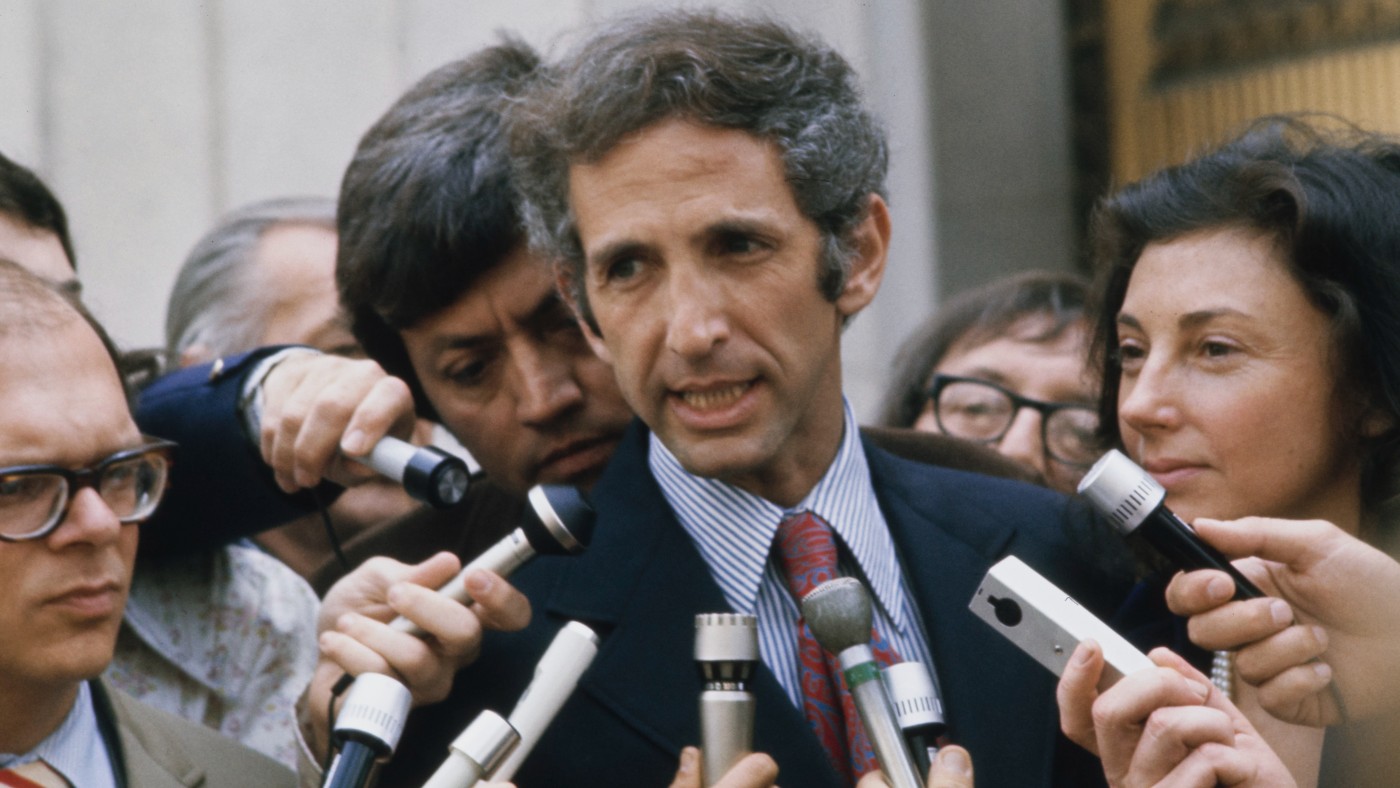Daniel Ellsberg: whistleblower who leaked the Pentagon Papers
Once dubbed ‘the most dangerous man in America’, the official claimed never to have regretted leaking

A free daily email with the biggest news stories of the day – and the best features from TheWeek.com
You are now subscribed
Your newsletter sign-up was successful
The “most important whistleblower of our times”, Daniel Ellsberg was the military analyst who smuggled hundreds of pages of top secret material about US actions in Vietnam out of his office at the Rand Corporation, and shared them with a reporter from The New York Times, said The Guardian.
Published in 1971, the so-called Pentagon Papers (an assessment of US decision-making in Indochina since 1940 commissioned by the defence secretary Robert McNamara) made it clear that almost everything the American public had been told about the Vietnam War was false – from its origins to contemporary views about its winnability. Ellsberg’s leaks did not end the war, but they set in chain a series of events that led to the resignation of President Nixon.
The immoral war
A former hawk, Ellsberg had grown concerned about the direction of US foreign policy while conducting research in Vietnam for the state department in the mid-1960s. When he was asked to work on McNamara’s report, he became convinced that continuing a conflict that had already killed tens of thousands of Americans, and millions of Vietnamese, Laotians and Cambodians, was not only a mistake but also immoral. In the autumn of 1969, he started smuggling the papers out of Rand’s offices in Santa Monica, California, aided by his colleague Anthony Russo. Russo’s girlfriend then gave him after-hours access to her advertising agency’s office, where, over eight months, he used its Xerox machine to copy the 7,000 pages.
The Week
Escape your echo chamber. Get the facts behind the news, plus analysis from multiple perspectives.

Sign up for The Week's Free Newsletters
From our morning news briefing to a weekly Good News Newsletter, get the best of The Week delivered directly to your inbox.
From our morning news briefing to a weekly Good News Newsletter, get the best of The Week delivered directly to your inbox.
Ellsberg tried to persuade anti-war members of congress to act on McNamara’s report, said The Washington Post; when that failed, he made contact with Neil Sheehan, a New York Times war reporter whom he had met in Saigon. The NYT began publishing excerpts on 13 June 1971. Three days later, the government obtained an injunction banning further publication. But by then, Ellsberg had leaked the papers to other media outlets – and The Washington Post decided to risk all by publishing them. Citing their First Amendment rights, the papers then fought their case all the way to the supreme court, and won.
Having been charged with espionage, Ellsberg and Russo were still facing up to 115 years in jail. But when their trial began in 1973, the judge threw out the charges, citing gross government misconduct. There was evidence of illegal wiretapping, and that government agents had broken into the office of Ellsberg’s psychiatrist in search of dirt on him. This, it turned out, was the work of a secret unit that Nixon had set up in 1971 to plug leaks, the Plumbers. It then emerged that the Plumbers had also been behind the break-in at the Democratic National Committee HQ in the Watergate building – the scandal that led to Nixon’s downfall in 1974. The war finally ended in 1975.
The most dangerous man in America
Born in 1931, Daniel Ellsberg was brought up in a middle-class family in Detroit, said The Daily Telegraph. His mother wanted him to be a pianist, and made him practise for eight hours a day. Then, when he was 15, she and his sister were killed in a car crash in which he was severely injured. Nevertheless, he did well enough at his studies to win a scholarship to Harvard. He undertook postgraduate work at Cambridge and Harvard; then, after military service in the marines, he joined the Rand Corporation as a military analyst, and became sought-after in policy circles. McNamara recruited him to work on his report in 1967. In 1971, Henry Kissinger branded Ellsberg “the most dangerous man in America”, and some persisted in viewing him as a traitor.
But he claimed never to have regretted leaking the Pentagon Papers, and spent the rest of his life campaigning for peace, and standing up for whistleblowers, including Edward Snowden and Julian Assange.
A free daily email with the biggest news stories of the day – and the best features from TheWeek.com